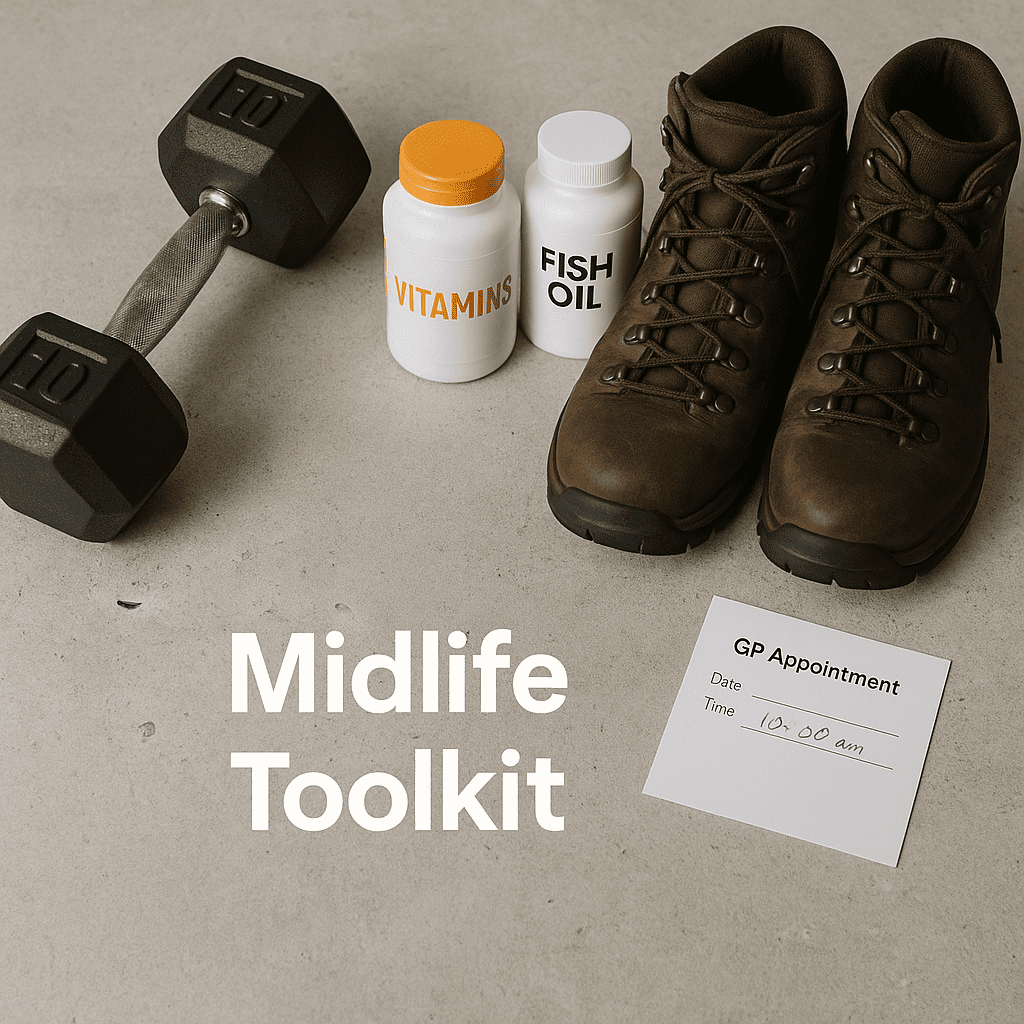If you’re an ND man, and by ND I mean neurodivergent, and you’ve been living with constant, bone-deep anxiety for years, there’s a good chance it isn’t “just anxiety.” There’s a very real possibility it’s ADHD in disguise.
Not the hyperactive schoolboy version you’ve seen on TV. Not the “can’t sit still” stereotype. This is adult ADHD’s quieter, nastier cousin, the one that fuels a constant mental hum of “I’ve forgotten something”, “I’m behind”, and “something bad’s about to happen”.
The worst part? Most men living with it have absolutely no idea it’s ADHD-related. They’ve been told it’s stress. They’ve been told to toughen up. They’ve been told it’s just their personality. And so the ADHD-anxiety connection stays hidden.
How ADHD builds chronic anxiety
ADHD doesn’t just make you forget your keys or lose track of emails. It rewires the way your brain handles attention, memory, and regulation, and that has a knock-on effect on your body’s anxiety system.
Here’s how the loop works:
- Executive dysfunction – You can’t reliably start, finish, or prioritise tasks.
- Repeated slip-ups – Missed deadlines, forgotten plans, impulsive decisions.
- Negative feedback – Criticism from bosses, partners, even strangers.
- Anticipatory fear – You begin expecting something to go wrong, every time.
- Permanent hypervigilance – Your nervous system stays stuck in “danger mode”.
Over time, this isn’t just the occasional spike of worry. It’s an ongoing state of fight-or-flight, where your body behaves as if a tiger is lurking behind the printer.
Why men get hit hardest
ADHD-related anxiety can affect anyone, but men are especially at risk of missing the link, and therefore never addressing the real cause. Why?
- Later or missed diagnoses – Many men reach their 30s, 40s, or beyond before anyone even suggests ADHD might be in the mix.
- Different masking – Women might talk openly about worry; men often bury it under overwork, avoidance, or irritability.
- Social conditioning – From a young age, men are told to “man up” and swallow fear, so they learn to hide it.
- Misinterpretation by professionals – Physical symptoms or irritability get labelled as stress or burnout, with no mention of ADHD.
One rare fact: A 2022 study found that men with undiagnosed ADHD were over twice as likely to meet criteria for a chronic anxiety disorder than men without ADHD – yet fewer than 40% had ever been screened for ADHD in a clinical setting.
What ADHD anxiety actually feels like for men
If you’ve got ADHD, anxiety often doesn’t show up as “what if something goes wrong?” It’s more “I know something will go wrong because it always does.”
Men describe it as:
- Mental reheating – replaying past mistakes so often you can taste them.
- Silent scanning –checking for potential disasters before anything even starts.
- Explosive irritation – frustration bubbling over after hours of keeping it in.
- Avoidance dressed as logic – convincing yourself “it’s not worth doing” when the truth is, you’re afraid of failing.
It’s anxiety woven into your habits, your routines, your interactions, to the point you barely recognise it as separate from you.
How it wrecks daily life
Unchecked ADHD anxiety can:
- Make work feel like a constant uphill sprint with no finish line
- Drain relationships through withdrawal or unpredictable moods
- Cause physical symptoms like chest pain, migraines, or digestive chaos
- Lead to burnout so severe you can’t bounce back without serious recovery time
And the cruel twist? The more you mask it, the more people assume you’re fine. Which means you stay stuck, without the help you actually need.
What can actually help
This isn’t about generic “deep breathing” advice. ADHD-driven anxiety needs strategies tailored to ADHD brains:
- Accurate diagnosis – If you’ve had lifelong anxiety and a track record of distractibility, impulsivity, or chronic disorganisation, get assessed for ADHD.
- Therapists who understand ADHD – Standard CBT can feel rigid; ADHD-focused therapy often works better with flexibility and practical tools.
- Structure without overload – Predictable routines help, but not ones so strict you can’t maintain them.
- Peer connection – Other ADHD men can validate your experience and share coping tactics.
- Medication – Sometimes treating ADHD directly reduces the anxiety dramatically. Other times, a combo of ADHD and anti-anxiety meds works best.
One lesser-known trick: body doubling – working alongside someone quietly, without them actively helping you. It can stop spiralling thoughts and make tasks feel less daunting.
Why you need to know if it’s ADHD
If you’re a man living with this kind of chronic anxiety and no one has ever mentioned ADHD, you might have been fighting the wrong battle all along. Treating only the anxiety is like bailing water from a sinking boat without patching the hole.
When you treat the ADHD – the executive dysfunction, the memory slips, the nervous system overdrive, the anxiety doesn’t always vanish, but it often drops from a deafening roar to a manageable hum.
So if this sounds uncomfortably familiar, it’s worth asking: what if my anxiety isn’t the problem – what if ADHD is?
Because once you know, you can stop living in permanent survival mode and start building a life that works with your brain, not against it.





Thank you I have just been searching for information approximately this topic for a while and yours is the best I have found out so far However what in regards to the bottom line Are you certain concerning the supply
Your blog is a treasure trove of knowledge! I’m constantly amazed by the depth of your insights and the clarity of your writing. Keep up the phenomenal work!
I have been surfing online more than 3 hours today yet I never found any interesting article like yours It is pretty worth enough for me In my opinion if all web owners and bloggers made good content as you did the web will be much more useful than ever before
I have read some excellent stuff here Definitely value bookmarking for revisiting I wonder how much effort you put to make the sort of excellent informative website
Your blog is a treasure trove of valuable insights and thought-provoking commentary. Your dedication to your craft is evident in every word you write. Keep up the fantastic work!
Thanks I have just been looking for information about this subject for a long time and yours is the best Ive discovered till now However what in regards to the bottom line Are you certain in regards to the supply
Your blog is a constant source of inspiration for me. Your passion for your subject matter shines through in every post, and it’s clear that you genuinely care about making a positive impact on your readers.
I do not even know how I ended up here but I thought this post was great I do not know who you are but certainly youre going to a famous blogger if you are not already Cheers